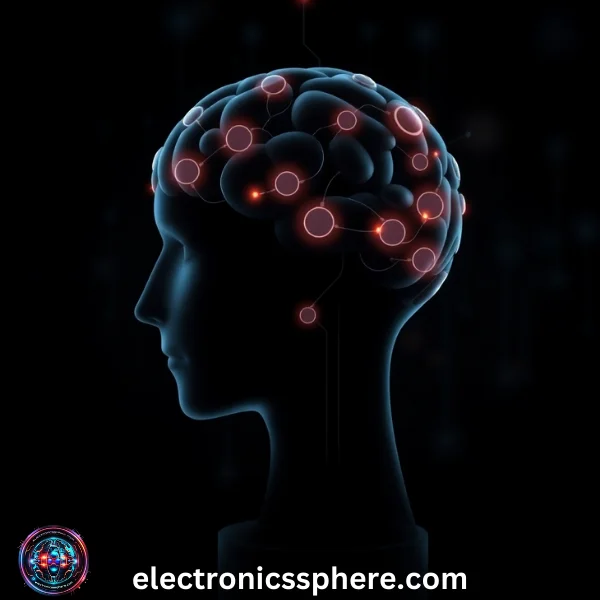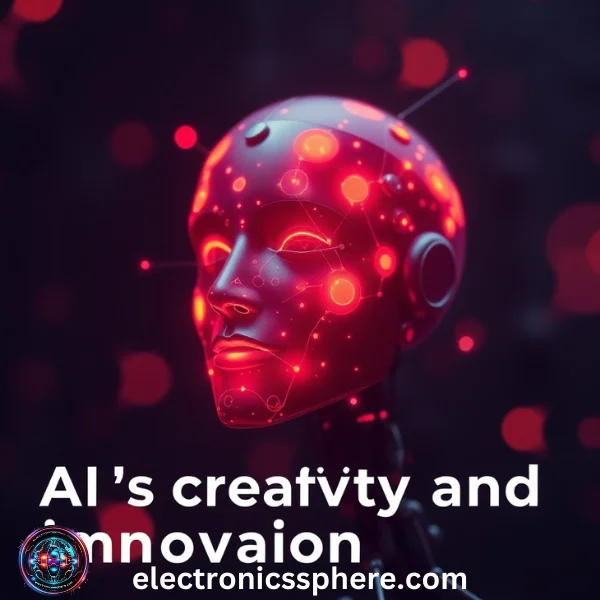Is Artificial Intelligence Shaping a New Thinking Paradigm? Examining the Externalization of Thought
Artificial intelligence (AI) is revolutionizing how we think, work, and interact with the world. By acting as an external thought process, AI has become a partner in decision-making, creativity, and problem-solving. It no longer just performs tasks; it enhances our intellectual capacity by processing information beyond human limitations.
This transformative technology has sparked debates. Is AI creating a new way of thinking? Can it redefine human cognition, or does it merely complement our thought processes? This blog explores how AI integrates into our cognitive framework, reshaping how we perceive knowledge and decision-making while addressing its challenges and implications.

The Role of AI in Enhancing Human Cognitive
AI strengthens our intellectual abilities by offering tools for better decision-making. AI systems process immense datasets in seconds, uncovering insights humans could miss. This capability boosts industries like healthcare, finance, and marketing by enabling data-driven strategies. For example, predictive algorithms help forecast trends, aiding businesses in making accurate decisions.
Beyond analytics, AI collaborates in creative tasks. Tools like ChatGPT or AI-based design platforms suggest innovative ideas, pushing the boundaries of human creativity. By acting as a cognitive assistant, AI complements and amplifies our mental capacity.

External Thought Process: A Paradigm Shift
AI redefines thinking by externalizing complex mental processes. By acting as a memory extension, virtual assistants store and retrieve crucial information, streamlining daily tasks. This functionality mimics cognitive processes, offering efficiency without the mental strain.
In decision-making, reliance on AI-driven algorithms ensures objectivity. AI provides data-backed recommendations, reducing errors caused by human bias or oversight. This externalization not only changes how we think but also how we rely on technology for intellectual tasks.
Is AI Developing Its Own Thought Process?
AI mimics cognitive functions, but does it truly think? Machine learning systems adapt through training, improving their responses over time. For instance, autonomous car systems learn from real-world scenarios, making complex decisions during emergencies.
However, AI lacks consciousness. It follows programmed logic and cannot experience emotions or intuition. This distinction raises questions about whether AI’s capabilities can be classified as independent thought or advanced simulations of human cognition.
The Ethical Implications of AI-Driven Thinking
The integration of AI in thinking processes comes with ethical concerns. Dependency on AI could erode human problem-solving skills, leaving us overly reliant on machines. This raises questions about intellectual autonomy. Similarly, bias in AI systems reflects societal prejudices embedded in their training data, leading to ethical dilemmas.
To responsibly harness AI’s potential, ethical frameworks must guide its application, ensuring fairness, accountability, and human oversight.
AI’s Impact on Creativity and Innovation
AI is reshaping creativity by introducing innovative tools and techniques. Creative industries now leverage AI-powered platforms for generating unique designs, music, and art. These tools act as collaborators, providing inspiration and new perspectives to artists.
In research and development, AI accelerates innovation by identifying patterns and predicting outcomes. Whether in drug discovery or engineering, AI transforms possibilities into realities. While AI supports creativity, it thrives alongside human imagination rather than replacing it.

The Future of Human Thought in an AI-Driven World
The integration of AI in thought processes opens doors to hybrid intelligence. This collaboration between humans and AI creates a synergy where strengths are combined. AI handles data-heavy analysis, while humans bring empathy and intuition to the table. This partnership is evident in fields like education, where AI personalizes learning while teachers foster critical thinking.
As AI evolves, educational systems and workplaces must adapt, focusing on equipping individuals with skills to navigate AI-enhanced environments effectively.
Challenges and Risks of AI in Cognitive Evolution
AI’s role in thinking processes isn’t without challenges. Over-reliance on AI risks diminishing our natural problem-solving and critical thinking abilities. Delegating intellectual tasks entirely to AI might lead to cognitive atrophy over time.
Privacy concerns also arise, as AI systems require access to personal data for effective functioning. Protecting this information and ensuring secure interactions between humans and AI remains a significant challenge.
Redefining Relationships with Technology
The fusion of human cognition and AI prompts rethinking our bond with technology. Augmented thinking through AI blurs the line between human and machine intelligence. This integration expands intellectual boundaries, enabling us to solve complex problems collaboratively.
At the same time, ethical questions arise about the autonomy and moral boundaries of AI systems. Defining these limits will shape the future of our relationship with intelligent machines.
Read more about predictions of AI technology in the future.
AI and the Collective Intelligence of Society
AI enhances collective intelligence by facilitating knowledge sharing. Global collaboration platforms powered by AI allow individuals from diverse backgrounds to contribute to solutions, breaking language and geographical barriers. This democratization of knowledge strengthens innovation.
AI-driven crowdsourcing harnesses collective problem-solving, pooling diverse perspectives to address complex challenges. This interconnectedness amplifies humanity’s intellectual potential.
Conclusion
AI is redefining how we think, creating a new external thought process that complements human cognition. While its benefits are transformative, it also demands careful consideration of ethical and societal implications.
As we move into this era of hybrid intelligence, the challenge lies in balancing AI’s capabilities with the preservation of human ingenuity. By fostering collaboration between humans and AI, we can navigate this cognitive revolution responsibly and unlock its full potential.





